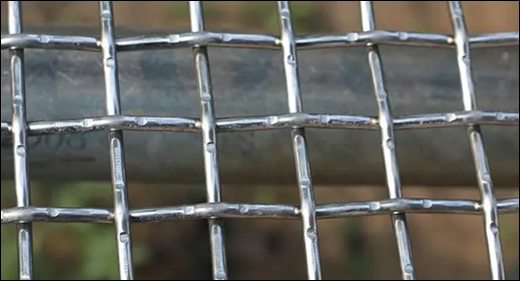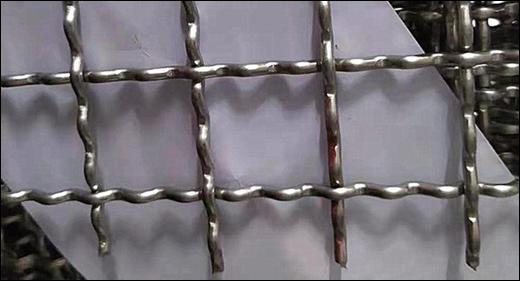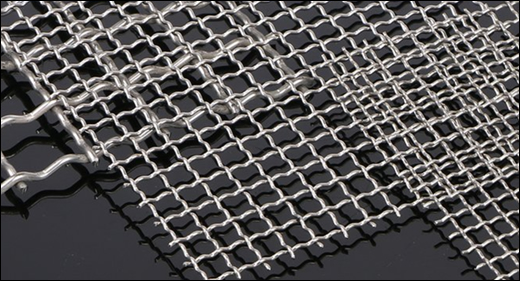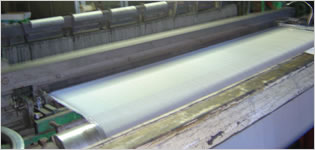Home > Products > Crimped Wire mesh
Crimped Wire Mesh Woven Wire Screens
Crimped wire mesh is a type of woven wire mesh made from various materials like stainless steel, galvanized steel, or other alloys. The key difference lies in the pre-crimping process, where the wires are bent before weaving. This creates a stronger lock between the wires, resulting in a more stable and durable mesh compared to flat woven options. Crimping strengthens the mesh against pulling, tearing, and fraying. Stainless steel offers superior corrosion resistance, making it ideal for marine environments, while galvanized steel provides a cost-effective option for general use. This versatility makes crimped wire mesh suitable for a variety of industrial, commercial, and even decorative applications.
Material Options: Durability at Your Fingertips
- Stainless Steel 304: The go-to choice for its exceptional resistance to corrosion and wear-and-tear.
- Stainless Steel 316: Provides superior corrosion resistance, particularly against harsh chemicals and salt environments.
- Galvanized Steel: Offers a cost-effective solution with good rust protection due to the zinc coating.
- Carbon Steel: Favored for its strength and affordability, making it ideal for heavy-duty applications.
- Brass and Copper: Utilized for specific applications where non-magnetic properties and conductivity are crucial.

Mesh Count: Balancing Visibility and Protection
- 2 Mesh: A coarse mesh with large openings, ideal for applications where airflow or light transmission is prioritized over particle filtration.
- 4 Mesh: Frequently used in industrial settings for applications like sifting or sorting larger particles.
- 10 Mesh: Provides a medium-sized opening, striking a balance between clear visibility and adequate protection from smaller particles.
- 20 Mesh: A finer mesh suitable for filtering moderately sized particles in applications like dust control or liquid filtration.
- 50 Mesh: An extremely fine mesh for intricate filtering tasks, such as sieving very fine powders or filtering microscopic particles.
Wire Diameter: Finding the Right Strength
Wire diameter is a critical factor impacting the mesh's strength and flexibility.
- 0.020 inches (0.508 mm) / 24 BWG: A thin wire used for fine mesh screens, prioritizing flexibility over structural strength.
- 0.035 inches (0.889 mm) / 20 BWG: A medium wire offering a good balance between strength and flexibility for versatile applications.
- 0.047 inches (1.19 mm) / 18 BWG: The most widely used wire size, suitable for a broad range of applications.
- 0.080 inches (2.03 mm) / 14 BWG: A thick wire for heavy-duty meshes requiring enhanced structural integrity.
- 0.135 inches (3.43 mm) / 10 BWG: An extra thick wire ideal for applications demanding exceptional strength.
Standard Shapes: Selecting the Optimal Form
Crimped wire mesh comes in various shapes to suit specific needs:
- Square: The most popular shape, offering a general-purpose solution for most applications.
- Rectangular: Employed in situations where a specific width-to-length ratio is required.
- Diamond: Often tercih [preferred] for decorative purposes due to its visually appealing aesthetic.
Available Sizes: Matching Your Project Requirements
Crimped wire mesh comes in standard sheet and roll sizes to cater to projects of varying scales:
- 3 feet x 10 feet (914.4 mm x 3048 mm): A popular size for larger projects requiring significant coverage.
- 4 feet x 8 feet (1219.2 mm x 2438.4 mm): A standard size prevalent in industrial settings.
- 6 feet x 12 feet (1828.8 mm x 3657.6 mm): Utilized for applications demanding extensive coverage areas.
- Rolls of 3 feet (914.4 mm) in width and 100 feet (30480 mm) in length: Ideal for continuous applications requiring long stretches of mesh.
Common Mesh Sizes of Stainless Steel Crimped Wire Mesh

Mesh Count (Number of Openings per Linear Inch)
20 Mesh
- Wire Diameter: Approximately 0.016 inches (0.40 mm)
- Weave Type: Plain Crimped Weave
- Usage: A common choice for general-purpose filtration and screening applications.
40 Mesh
- Wire Diameter: Approximately 0.010 inches (0.25 mm)
- Weave Type: Intermediate Crimped Weave
- Usage: Offers a finer mesh size, suitable for more precise filtration.
60 Mesh
- Wire Diameter: Approximately 0.0075 inches (0.19 mm)
- Weave Type: Lock Crimped Weave
- Usage: Provides even finer filtration, often used in industrial processes.
80 Mesh
- Wire Diameter: Approximately 0.0055 inches (0.14 mm)
- Weave Type: Flat Top Crimped Weave
- Usage: A highly fine mesh, commonly used in laboratory and research applications.

Micron Rating (Aperture Size in Microns)
100 Microns
- Wire Diameter: Varies depending on mesh count
- Weave Type: Plain Crimped or Twill Weave
- Usage: A popular choice for many filtration applications.
200 Microns
- Wire Diameter: Varies
- Weave Type: Inter-Crimped Weave
- Usage: Offers a larger aperture size, suitable for coarser particles.
300 Microns
- Wire Diameter: Varies
- Weave Type: Lock Crimped Weave
- Usage: A versatile mesh size used in various industries.
400 Microns
- Wire Diameter: Varies
- Weave Type: Double Crimped Weave
- Usage: Provides a relatively large aperture, often used for screening applications.
Other Common Mesh Sizes
150 Mesh
- Wire Diameter: Approximately 0.0030 inches (0.076 mm)
- Weave Type: Plain or Twill Weave
250 Mesh
- Wire Diameter: Approximately 0.0020 inches (0.050 mm)
- Weave Type: Plain Dutch Weave
350 Mesh
- Wire Diameter: Approximately 0.0015 inches (0.038 mm)
- Weave Type: Twill Dutch Weave
500 Mesh
- Wire Diameter: Approximately 0.0010 inches (0.025 mm)
- Weave Type: Reverse Dutch Weave
Note: The specific mesh size required will depend on the application and the size of the particles to be filtered or screened. It's essential to select the appropriate mesh size, wire diameter, and weave type to ensure optimal performance. The wire diameter influences the mesh's strength and the size of the openings, while the weave type affects the mesh's stability and filtration properties.
Industry Standards: Ensuring Quality and Consistency
Crimped wire mesh typically adheres to these industry standards, guaranteeing quality control:
- ASTM E2016: The standard specification for industrial woven wire cloth in the United States.
- ISO 9044: The international standard for industrial wire screens and woven wire mesh.
- BS 410-1: The British Standard for test sieves and screening materials.
Packaging Considerations: Safeguarding Your Investment
Crimped wire mesh is packaged meticulously to ensure protection during transportation and storage. Common methods include:
- Rolls: Wrapped securely in plastic film and placed within sturdy wooden crates for enhanced protection.
- Sheets: Stacked neatly, separated by paper or plastic sheets to prevent damage, and then strapped onto pallets for secure transport.
- Custom Packaging: Available to cater to specific customer requirements, ensuring maximum protection and facilitating easy handling.





